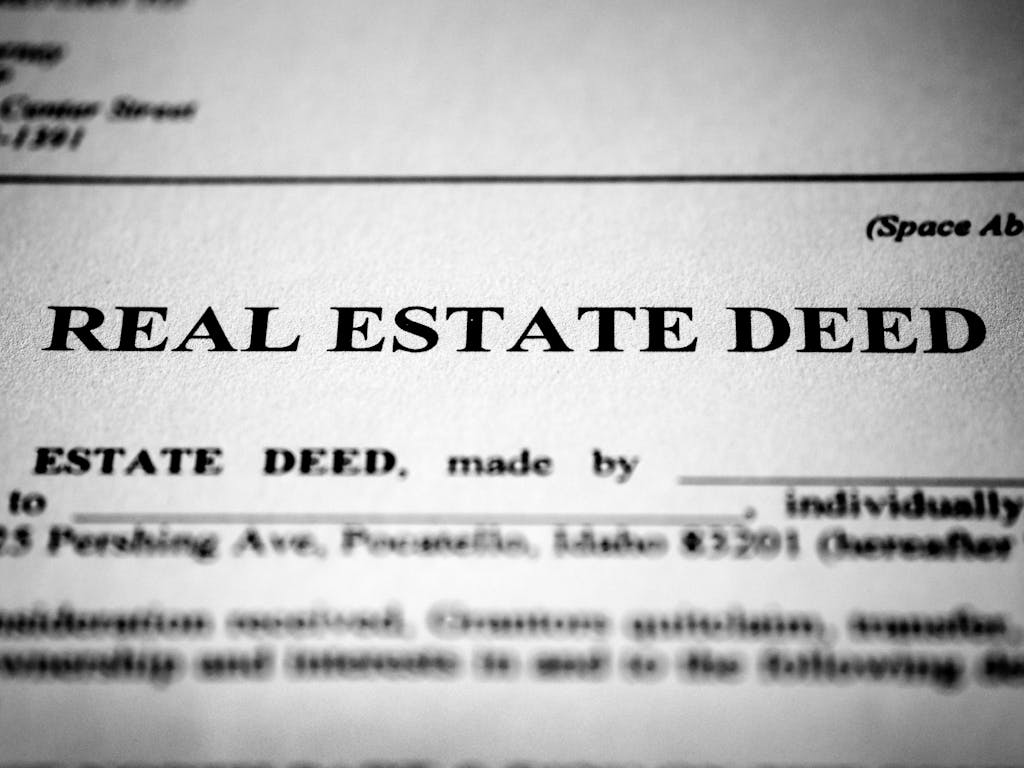
How a Dallas Property Division Attorney Can Protect Your Assets
Divorce is never simple. It brings emotional and financial challenges that can be overwhelming for anyone going through it. One of the most stress-inducing aspects of divorce is property division. However, with a knowledgeable Dallas Property Division Attorney by your side, you’re not navigating this complex terrain alone. At the Law Office of Chris Schmiedeke, PC., our attorneys provide guidance tailored to your unique situation, ensuring that your rights and interests are upheld throughout the process. Here’s how we assist you in achieving a fair outcome.

Understanding Property Division in Texas Divorces
In Texas, property division is governed by the community property law. This means that all assets acquired during the marriage are presumed to be owned equally by both spouses. However, this doesn’t imply a 50/50 split in every scenario. The court has the authority to decide on an equitable distribution of these assets. Understanding the complexities of community property law is crucial for securing a fair division of assets. Our attorneys are adept at navigating these complexities, ensuring that you receive what you’re rightfully entitled to.
EXCELLENTTrustindex verifies that the original source of the review is Google. This office is amazing. I spoke with Robert, who was so helpful, and he answered all my questions in depth and helped me understand my summer visitation. I highly recommend this office if you need to hire a family lawyerTrustindex verifies that the original source of the review is Google. Bobby was absolutely amazing answering all of my questions today regarding preliminary divorce proceedings. He was an absolute professional who truly cared about my side of the story. In this difficult moment in time, it’s very comforting to have a law firm that truly understands what I am going through. Would HIGHLY recommend!Trustindex verifies that the original source of the review is Google. Bobby Ortiz thank you! I’ll give you more stars but they only have 5.Trustindex verifies that the original source of the review is Google. I feel blessed to have worked with this team for my divorce process. Amanda was such a sweetheart, and was incredibly thorough throughout everything. Every question was answered promptly, every I was dotted, every T was crossed. I thought this would be a long, difficult process- If it usually is, I wouldn't know it! These people really spoiled me :) If you're thinking about getting a divorce, please give these people a call. They'll make it a lot less scary.Trustindex verifies that the original source of the review is Google. Chris Schmiedeke's office was professional and kind in answering my questions. They took the time to provide thorough explanations and made sure I felt comfortable with the information provided. I truly appreciated their courteous and attentive approach.Trustindex verifies that the original source of the review is Google. My mom recently decided that she wanted a divorce, and I was the one handling all communications on her behalf. From the very beginning, Chris Schmiedeke and his legal team were professional, compassionate, and incredibly detail-oriented. They took the time to understand my mom’s situation and ensured she felt supported every step of the way. Their communication was top-notch they always kept me informed about what was happening, answered all of my questions promptly, and made sure we understood the legal process. They worked tirelessly to secure a favorable outcome for my mom, and I truly felt like they had our best interests at heart. Thanks to their expertise and dedication, my mom came out of this with a sense of relief and justice. I highly recommend Chris Schmiedeke and his team to anyone in need of a reliable and empathetic legal team. They turned a stressful situation into one we could navigate with confidence. Five stars aren’t enough!Trustindex verifies that the original source of the review is Google. Roberto was straightforward and answered all my questions. I felt comfortable speaking with him and he put my mind at ease.Trustindex verifies that the original source of the review is Google. My experience was great answered any questions I had i appreciate the free consultation and time to discuss my situation thank you.Trustindex verifies that the original source of the review is Google. The best Law Office in Texas, Very profesionals and quck respond, This is the Layers everyone needs for any case. Im glad im in their hands. Thank You for your great help Chris Schmiedeke, PC.Verified by TrustindexTrustindex verified badge is the Universal Symbol of Trust. Only the greatest companies can get the verified badge who has a review score above 4.5, based on customer reviews over the past 12 months. Read more
What is Considered Property in Dallas, Texas?
When considering property in a divorce, it’s important to recognize that it extends beyond tangible items like real estate. Property encompasses separate, mixed, and community assets. This includes everything from bank accounts and vehicles to household furniture and retirement plans. Our team helps you categorize each asset accurately, which is essential for a fair division. We guide you through the process, breaking down what each category entails and how it affects your case.
Differentiating Separate, Mixed, and Community Property
- Separate Propertyincludes assets that one spouse owned before the marriage or received as a gift or inheritance. These are typically not subject to division.
- Mixed Property refers to assets that may have started as separate but have become mixed with marital assets over time, making their classification more complex.
- Community Propertyconsists of assets acquired during the marriage, subject to division upon divorce.
In a divorce, equitable distribution covers any asset owned by a spouse. If a couple owns property together, it’s considered community or marital property. If a spouse owned something before marriage, it’s separate property. According to the Texas Family Code, property is presumed to be community property. If a spouse claims it’s separate property, they must prove it with clear and convincing evidence.
The Impact of Inheritance on Property Division
Inheritance often falls under separate property, but complications arise when these assets mix with marital property. For instance, if inherited funds are deposited into a joint account, they may lose their separate property status. This can significantly impact the division process. Understanding how to trace and prove the separate nature of these assets is key. Our attorneys are skilled in managing such scenarios, ensuring that your inherited assets are protected in the division process.
How the Court Calculates Equitable Distribution
“Equitable” distribution doesn’t necessarily mean “equal.” The court strives to reach a fair division by considering several factors. These can influence the ultimate division of property, ensuring that each spouse’s circumstances are taken into account.
Factors Considered in Property Division
Courts consider various elements when determining equitable distribution, including:
- Tax Implications: The potential tax burdens each spouse might face as a result of the division.
- Child Custody: The spouse with primary custody may require more resources to support the child.
- Income Discrepancies: Differences in earning capacity and job prospects between spouses.
- Health Needs: Any existing medical conditions that may affect financial stability.
- Marital Conduct: Instances of infidelity or financial misconduct can impact the division.
- Earning Potential: Future employability and career prospects of each spouse.
Our attorneys ensure that these factors are thoughtfully presented and considered in your case, so the division reflects your needs and contributions.
Handling Debt Division in Dallas, Texas
Just like assets, debts acquired during the marriage are also part of property division in Texas. While these debts are typically shared, they are not always divided equally. Determining what is fair requires a deep understanding of marital finances. Our legal team assists you in identifying and valuing debts, advocating for an equitable distribution that considers your financial situation and future stability.
Strategies for Dividing Property Independently
While courts can intervene in property division, many couples opt to handle it independently. This approach can be less contentious and more efficient. Here’s how to go about it:
Inventory Assets: Create a comprehensive list of all assets owned together.
Assign Value: Determine the worth of each item, ensuring an accurate assessment.
Decide Ownership: Agree on who will retain which assets.
Seek Approval: Present your agreement to a judge for official approval.
Our attorneys can guide you through this process, ensuring your agreement aligns with legal standards.
When to Seek Legal Assistance for Property Division
If disputes arise or complex assets are involved, legal guidance becomes essential. A Dallas Divorce and Family Law Attorney can facilitate negotiations and ensure that the division is equitable and legally sound. We provide personalized strategies that cater to your unique circumstances, helping to resolve conflicts efficiently and effectively.
Frequently Asked Questions about Texas Property Division
To prove that a disproportionate division is necessary, you must present evidence of financial disparity. This could include one spouse’s business ownership, significant income differences, or a homemaker role that impeded career development.
If a spouse hides assets, it can invalidate a divorce decree. Courts often favor the deceived spouse in these situations, rectifying the division to account for the undisclosed assets.
When property is involved in bankruptcy, it becomes untouchable until the bankruptcy proceedings are resolved. However, issues like custody and support can still proceed.
Why Choose the Law Offices of Chris Schmiedeke, P.C.
At the Law Offices of Chris Schmiedeke, P.C., we are committed to supporting our clients through the challenging process of property division. We offer personalized legal strategies that focus on your unique situation, ensuring that your interests are protected and your goals are met. Our experienced attorneys work diligently to achieve the best possible results for you.
Get Personalized Guidance for Your Property Division Needs
Navigating property division doesn’t have to be overwhelming. With the right guidance, you can move forward confidently. If you have questions about your situation, reach out to our team for a personalized consultation. At the Law Office of Chris Schmiedeke, P.C., our focus is on providing the support and expertise you need, allowing you to navigate the complexities of property division with confidence. Call us at 214-643-8904 or fill out our online form for further assistance.

